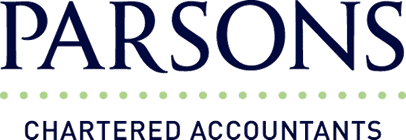
How do I get best value for my financial audit fee?
There’s been a trend of increasing audit fees over the years with costs rising across the board, among providers large and small. So what’s driving this increase in audit fees, and what can your business do to ensure maximum value from your statutory financial audit?
According to auditing regulatory body the Financial Reporting Council (FRC), audit fees have been steadily and continually on the rise since they started gathering statistics back in 2004. While their latest findings show that prices increased among all providers in 2020, the hike was more significant among the ‘Big Four’.
During that year, between them they were responsible for auditing all FTSE 100 companies and more than 200 from the FTSE 250, and raised their average audit fees by 7.7%. Across all other auditing companies, the average fee rise was a smaller but still significant 4.7%* for the same period.
Why are audit fees rising?
Various things have contributed to the continuing upward trend in audit costs. A few of the biggest influencing factors are explained below:
- The 2016 Audit Regulation and Directive (ARD) – after issues and failures were found within the upper-end of the audit industry, scrutiny increased and with it, the requirement to put long-term contracts back out to tender. Larger firms increased fees to make up for a smaller client-base and a portion of their clients needed to find new homes. This in turn led to the next provider tier down increasing their prices in order to guarantee service with more limited resources. Through the chain this cycle continues, driving prices up along with competition.
- Increasing standards – in addition to stricter regulations, new standards have been introduced, audit scope has expanded to cover the additional items for scrutiny and reporting demands rise. This means auditors must spend longer on each client’s project, leading to higher fees.
- Talent acquisition – larger commercial businesses have started to create lucrative internal roles for auditors and financial experts, leaving a deficit in the talent pool. This has put pressure on providers to attract talent with greater salaries and benefits in order to meet the demand. Fees have risen to cover those costs.
- Infrastructure improvements – as with many business practices, the auditing process has become increasingly reliant than ever on IT. Technology includes sophisticated data analytics tools to improve accuracy, reporting and forecasting, automation systems to create a more efficient audit process, data security programs and myriad other software and systems. These tools, their maintenance and licensing agreements come at a price, which subsequently gets passed onto clients.
How do I get best value for my financial audit fee?
Here are our top tips to ensure that you maximise the value from your audit:
- Time it right – the vast majority of clients have December year-ends and therefore want their work completing in the first quarter (January to March). This ‘busy season’ can lead to paying a premium to get your audit completed on time, so it’s well worth considering either changing your year-end, or managing your stakeholder timeframe expectations in order to secure a provider at a more favourable rate.
If you’ve remained loyal to a provider for several years and they are not making efforts to schedule your audit to a more manageable time of the year, then making a switch is worthy of consideration.
- Responsiveness – aside from your legal obligations to demonstrate that everything is above board with your accounts, an audit is also a powerful internal tool, providing benefits to your business such as:
- Identifies systematic, procedural or software errors
- Identifies areas for efficiency and internal control improvements
- Demonstrates integrity to shareholders, investors and other stakeholders
By embracing the process of a statutory audit and being responsive to your auditors, you’ll help to keep things running much more efficiently. This should help to keep the auditor’s time and therefore their costs to a minimum, plus avoiding potential fee increases as a result of internal inefficiencies.
You’ll usually be required to assign an appropriate manager or employee to assist the auditor by providing any information they need to carry out their work. It’s a good idea to identify the best person for the job before you get started, to ensure the process runs as smoothly and swiftly as possible.
- Shop around – ensure you get a few quotes and clarify what each auditor’s fees cover. Look beyond top tier audit providers and seek personal referrals from business and intermediary contacts. The fee should reflect the service you desire – if you want a premium auditing service from a premium audit firm, you’re highly likely to need to pay premium fees. A premium service from a lower-tier firm may demonstrate better value to you and your business.
Here at Parsons, our team of experienced auditing specialists are always happy to talk through your requirements and offer tailored advice. Please contact us if you’d like a no-obligation chat about your requirements.







